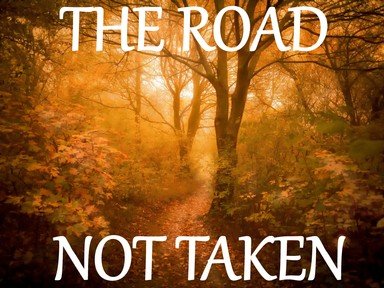
"The Road Not Taken" Taken Apart Quiz
Many of us have read or studied Robert Frost's famous poem at some time. Let's see how well you remember it. There is one word missing from each line for you match and complete.
by Midget40.
Estimated time: 3 mins.